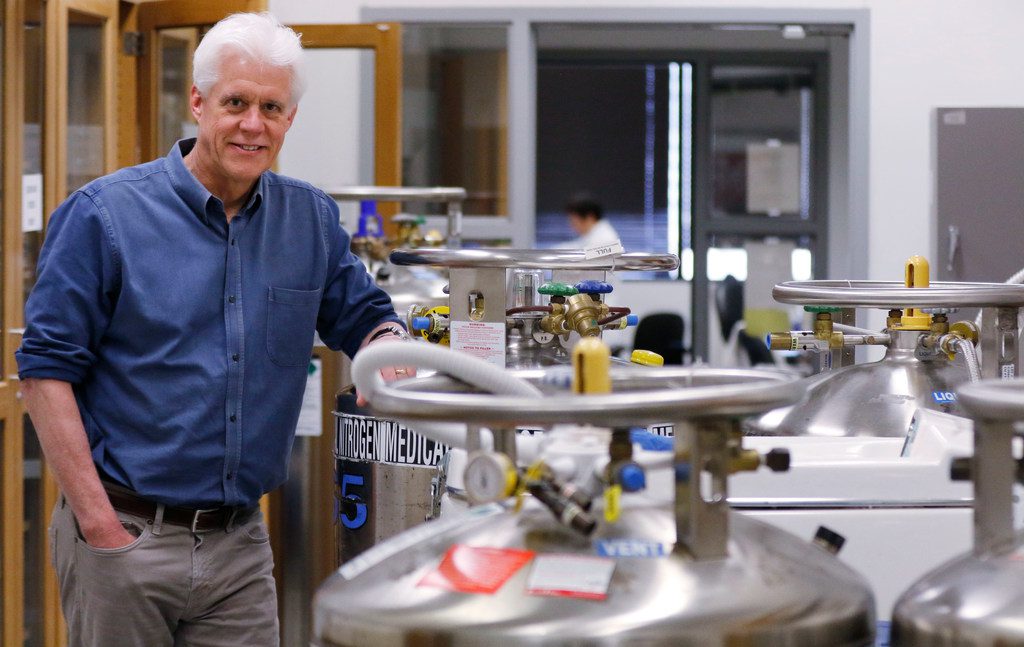A UT Southwestern researcher was part of an international team recently awarded one of the largest non-commercial grants ever from the nonprofit British Health Foundation (BHF) to study certain heart conditions and treatments.
Eric Olson, chair of the Department of Molecular Biology at UT Southwestern Medical Center, will be working alongside doctors and scientists as part of CureHeart, a research mission utilizing gene editing technology to cure patients of inherited heart diseases.
Olson’s lab at UTSW has pioneered the development and discovery of genome editing breakthroughs to help cure cardiovascular disease and defects. In the lab, mice have undergone CRISPR technology gene editing, helping doctors identify and isolate the exact genomes responsible for common muscle diseases.
Through their research, Olson and his team in Dallas have helped discover potential cures for the mutations that cause Duchenne muscular dystrophy.
As part of the CureHeart initiative, Olson will be joining a team consisting of researchers from the U.S., UK, and Singapore. The group “will seek to develop the first cures for inherited heart muscle diseases by pioneering revolutionary and ultra-precise gene therapy technologies that could edit or silence the faulty genes that cause these deadly conditions,” according to the BHF.
“Over the last 30 years, we have made extraordinary advancements in our understanding of the genetic mistakes that cause cardiomyopathy. CureHeart is a once-in-a-generation opportunity to transform this knowledge into a cure,” Olson said.
BHF estimated that one in 250 people suffer from an inherited heart muscle disease. Of these people, 50% usually pass on the same gene defective gene to their children.
“Every year in the US, around 2,000 people under the age of 25 die of a sudden cardiac arrest, often caused by one of these inherited muscle diseases,” stated the BHF.
With help from the BHF grant, the CureHeart team hopes to progress into gene-editing technology clinical trials. If a child is known to have inherited a faulty gene that eventually causes a type of heart disease, such gene therapy could be injected and prevent the child from ever developing the disease in the first place.
Although many scientists have been touting the possibility that gene editing could eradicate diseases that were previously incurable, some have serious concerns about the technology.
As explained by Jim Kozubek, the author of Modern Prometheus: Editing the Human Genome with Crispr-Cas9, gene editing has the potential to become akin to a modern form of eugenics, with parents selectively short-circuiting features of human evolution and phasing out neuro-divergent people like those with autism or Downs syndrome.
Kozubek noted that the same genes targeted to be removed by researchers, such as the ones causing autism, also contain coding that allows humans to process numbers and situations efficiently.
Additionally, tech giants like Mark Zuckerberg and Priscilla Chan have sought exclusive patents to commercialize gene discoveries.






